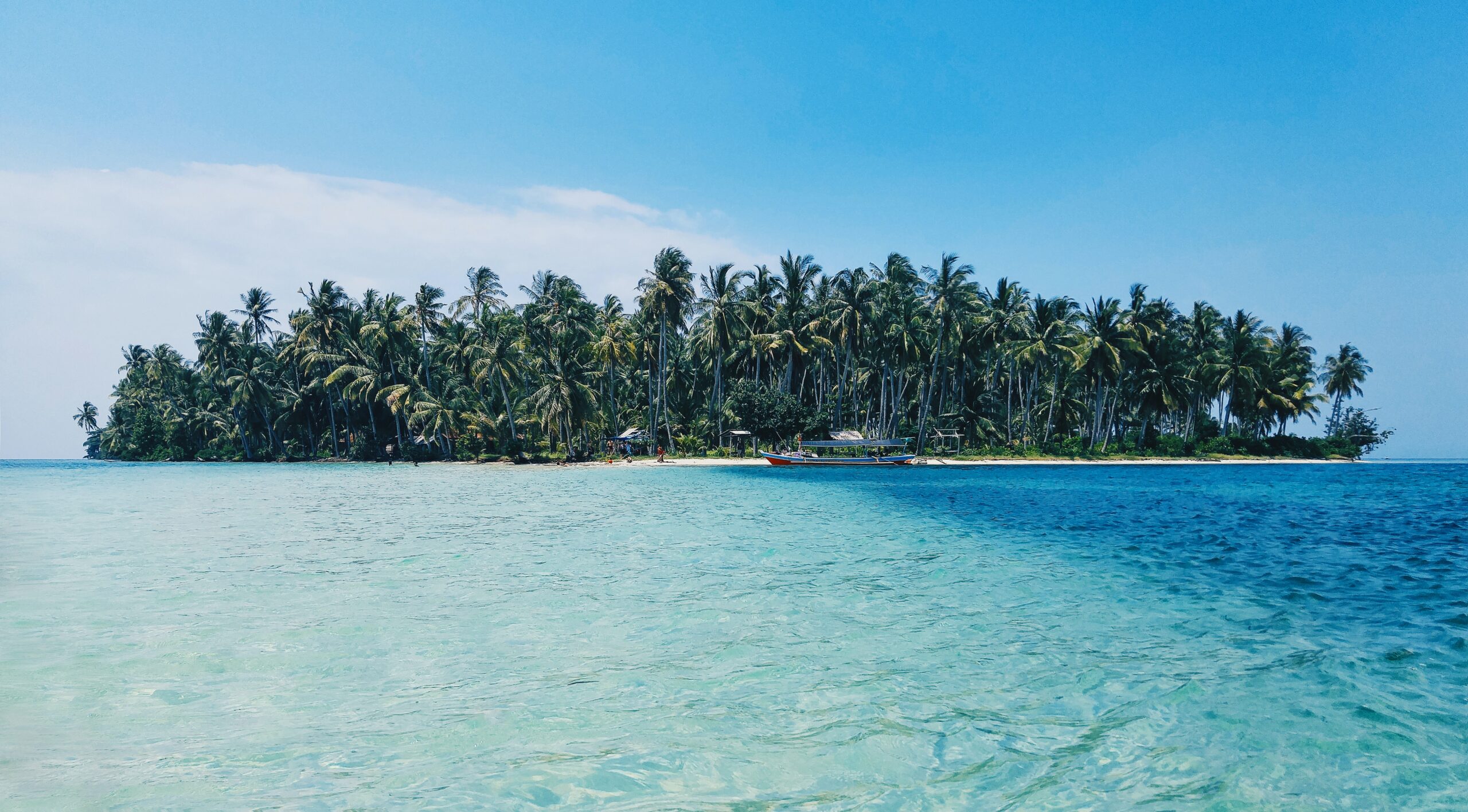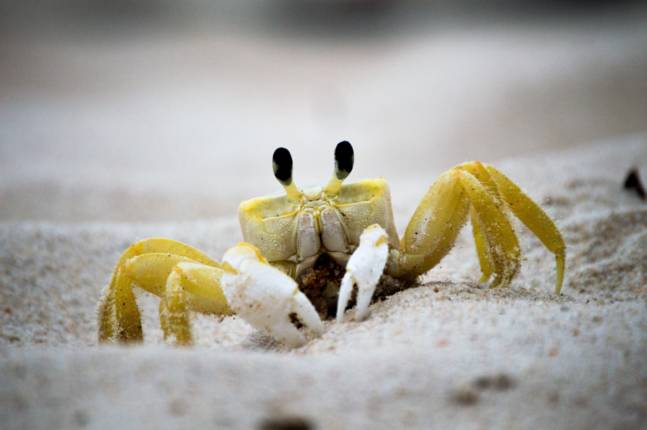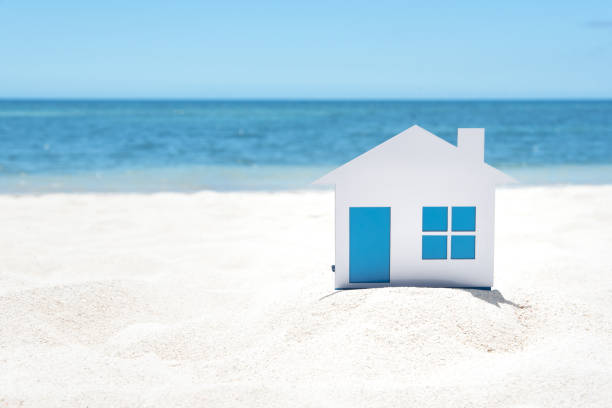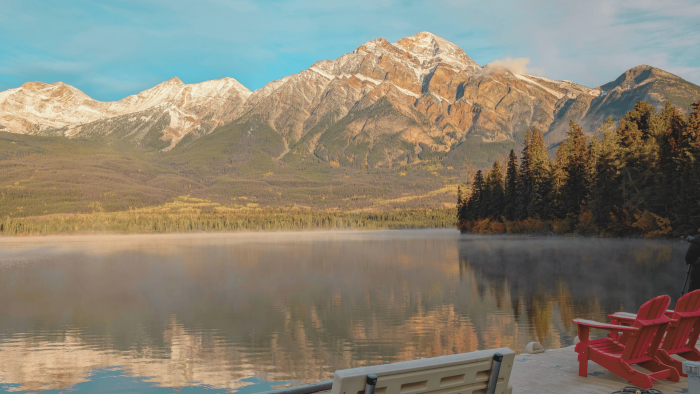In a purely hypothetical context, private islands are an extremely attractive idea. When you own one, you join the likes of Leonardo DiCaprio, Marlon Brando, George Clooney, and Gene Hackman. You reign supreme over your personal kingdom, free from the interference of meddlesome neighbors, able to escape to paradise at a moment’s notice. Or you would if reality didn’t keep getting in the way. If you happen to have the means yourself or, more likely, you’ve wondered how one would even go about buying a private island, this guide is for you.

Can You Create Your Own Country on a Private Island?
Short answer? No. You cannot do whatever you want on a private island. Despite what everyone’s internal libertarian is currently shouting (admitting you have one makes the rest of your life much easier), this is a good thing. Consider the Epstein-level chaos that would be wrought by everyone with more than a million dollars being able to buy their own untouchable island. Lord of the Flies would be the tip of a deeply traumatic and potentially unhealable iceberg.
At the end of the day, you’re buying real estate, not founding a sovereign nation. Private property means you’re still beholden to the laws of the country from which you’re buying the island. Just like how you can’t break land speed records as soon as you buy your first Honda Civic and how you can’t atomize any random person who unexpectedly walks into your house.
The obvious counterargument to this is, why not have someone buy the island and declare independence from whatever government sold them the land in the first place? The obscure historical rebuttal is, that someone tried that and it didn’t work.
In 1971, Michael Oliver, an American real estate mogul, bought reclaimed reefs in the Pacific and built artificial islands using barges of sand with the intention of founding the Republic of Minerva. Oliver declared independence from Tonga, a country 250 miles off the coast of the reefs, and issued currency for his new island nation. That means Oliver followed all the steps a 14-year-old understands in founding a new country.
But Oliver forgot about how hostile other countries are to the idea of having lawless wastelands carved out of their territory. The King of Tonga pretty much immediately rejected Oliver’s new nation and took his land back. Then rejected the next few claims to the Minerva Reefs. Then the artificial islands were sucked back into the Pacific Ocean. Put all of this together to learn the simple lesson that the nations of man and laws of nature won’t abide you building your own nation out of money and libertarian vibes.
How Much Does a Private Island Cost?
Personal dreams aside, buying a private island is relatively achievable, it just depends on where you want to buy that island. Island prices, like all other real estate, vary. Some are affordable for a regular person who channeled their reclusiveness into a savings account worth around $70,000. With that kind of money, they could buy themselves an island off Nova Scotia.
But remember that a private island comes with the same caveats as anything else that’s advertised as a luxury but can be bought by a normal person. Those islands off Nova Scotia aren’t going to be the idyllic beachy properties most people are daydreaming about. They’re going to be cold, wet, foggy, stormy, dangerous islands that even the locals deemed uninhabitable. You might be buying them for less than a luxury camper, but getting to them is going to make you wonder whether the money you saved was worth the effort.
A lot of islands are available in more tropical places, though they come with the price tag you’d expect. Private Islands Inc. is a real estate company with exactly this specialty and most of their listings are in the dozens to hundreds of millions. Or their price is only available upon request, which means most of our only hopes of affording it is to join together with a hundred thousand of our closest friends, at which point we wouldn’t actually fit on the island anymore.
That said, dropping the premium money on a Caribbean or Mediterranean island comes with its own trade-offs. Some of those islands are just as remote, where you’ll spend more than half the hours in a day on a boat traveling to your new paradise. Then, once you get there, you have bureaucracy already there, telling you what you can and can’t do with your island because, remember, these aren’t libertarian utopias.
What Is It Like to Own a Private Island?
Speaking of bureaucracies, we should talk about what actually owning an island is like. Since the overwhelming majority of these islands fall under the jurisdiction of an existing nation-state, they’re subject to the same regulations of development, sometimes more, given that an island is often an isolated ecosystem with its own nuances and peculiarities. That NPR article we linked to above talked about environmental impact studies being required before any development is allowed. A normal environmental impact study on a normal Bahamian island costs $50,000. Or it did in 2012 when the article was written.
After you’ve gotten permission to build, the expenses really start rolling in. You’re now responsible for most of the things civilized people take for granted. That means building your own plumbing system, finding fresh water, and generating your own power, in addition to the small stuff, like importing food, building supplies, contractors, and laborers.
In fact, if you want to know more about what the actual lifestyle is on a private island, here’s an interview Cosmopolitan did with a rich old lady. It reads exactly as you’d expect. A rich person espousing the benefits and luxuries of living in their own private resort while glossing over the contributions of her employees. The stereotypical view of island life is a solitary, private lifestyle, drinking fancy cocktails on white sand beaches and swimming in your personal cove of sapphire water. But there’s a substantial support staff around you bringing food to your house, collecting fresh water, maintaining the property, providing minor medical care, and supporting basic technological infrastructure.
Honestly, the pros don’t fare well when held up against the cons. The pros come off like someone who’s still fantasizing about the island. Exclusivity and privacy are nice in theory, but we’ve already seen you need a near-constant support staff to keep your island running, which means it’s not actually just you on the island. You could also generate some ROI by turning the island into a rental property and charging a premium, but then you’re not actually enjoying your private island, you’re investing in a business. Then you get to the cons, which are hilariously grounded. It’s expensive and impractical.
So, How Do You Buy a Private Island?
Let’s say you’re ignoring everything we’ve talked about so far and have decided to buy one of these ridiculous things. This is among the most specific of real estate. You’re likely not going to be going through Long and Foster or ReMax.
We talked about Private Islands Inc. already, but we’ll plug them again. They have postings for islands off every continent except Antarctica. Some prices are listed, some aren’t. The cheapest, as of this writing, is a lot on Long Caye, Belize for just under $40,000, though it’s not actually a standalone island. Their first private offering is Mangrove Island for an even $40,000, where you can’t build on the land and would have to carve some space out of the water, but not where there’s protected coral. The prices climb quickly from there, though we will say we were surprised by how many didn’t actually break a million dollars.
You could also go through Christie’s International Real Estate, where a blog post on their homepage is titled “Gift a Private Island for the Holidays”. Evidently, December 2020 was the perfect time to pander to rich people’s desire not to get poor all over them, especially when it comes with a disastrously infectious respiratory virus for which there was not yet a vaccine.
There’s also JamesEdition, whose navigation menu includes such grounded products as yachts, jets, and helicopters.
Really, an island seems better suited as a private fantasy, not a practical reality. From the moment you finalize your purchase, you’d be so wrapped up in red tape and logistical issues that you’d have to buy a second island to get away from the problems of the first, at which point you enter into a recursive nightmare. No actual island could possibly live up to the paradise you’ve created in your head, so just stay there. At the very least, it’s way cheaper.







